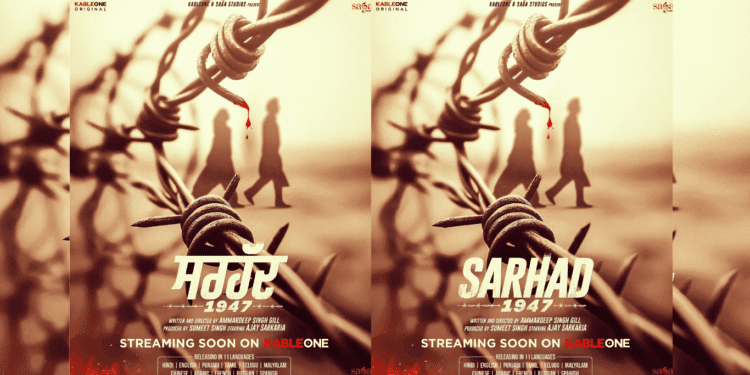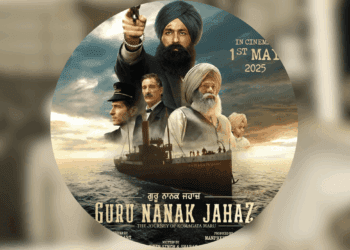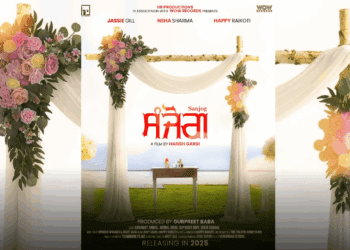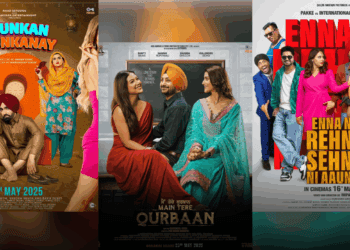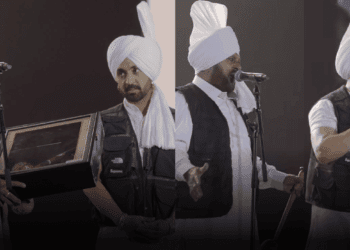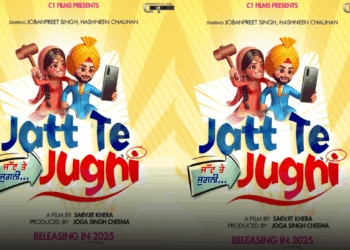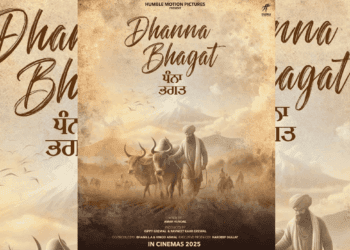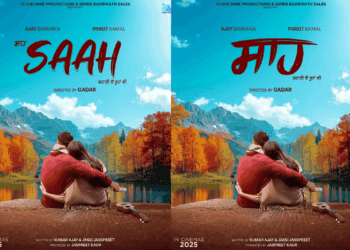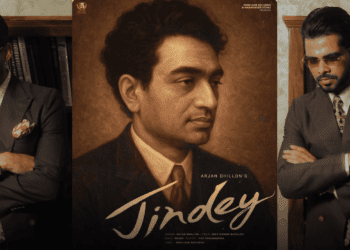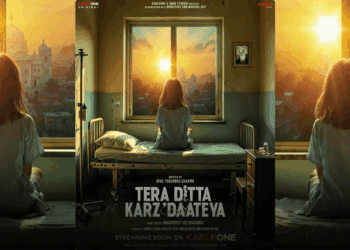In the annals of human history, some years are not just numbers they are turning points, etched with pain, division, and irreversible change. The year 1947 is one such chapter. Sarhad 1947, an upcoming multilingual film, dares to revisit that harrowing timeline through a story that’s as emotionally stirring as the barbed wire seen on its poster sharp, piercing, and unforgettable.
Presented by KableOne and Saga Studios, Sarhad 1947 is written and directed by Ammardeep Singh Gill and produced by Sumeet Singh, with Ajay Sarkaria taking on a central role. The movie promises to offer more than a tale; it seeks to unravel the scars of a divided land and the broken hearts that followed.
A Poster That Bleeds Emotion
One glance at the official poster and you’re struck by the imagery barbed wire twisted with a single drop of blood clinging to its edge. In the background, shadowy human figures walk away, representing displacement, loss, and separation. It’s not just a design it’s a silent scream of millions who were torn from their homes during the Partition.
This powerful visual metaphor sets the tone for what the film likely explores: not political history, but the human price of partition. The trauma, the silence, the grief these are the core emotions audiences may experience as they walk through the blood-soaked lanes of 1947, guided by cinematic storytelling.
Unlike most historical dramas limited to a single region or language, Sarhad 1947 breaks those walls by releasing in 11 languages Hindi, English, Punjabi, Tamil, Telugu, Malayalam, Chinese, Arabic, French, Russian, and Spanish. This multi-language rollout signals one thing: the pain of 1947 was not local. It was a global moment of reckoning, a story that needs to be heard across cultures and continents.
Streaming soon on KableOne, the film will be accessible to millions around the world, making it a significant step in digital storytelling rooted in truth.
The creators behind Sarhad 1947 are not merely telling a story they’re fulfilling a long-standing emotional commitment. According to a previously shared note by the creator, this project is deeply personal, reflecting years of emotional investment, poetry, and introspection on the trauma of Partition. This sincerity is expected to echo through the dialogues, visuals, and performances of the film.
Every element of this project from casting to costume, soundtrack to symbolism is aligned with one goal: to do justice to a generation that suffered in silence. It’s not just about depicting tragedy; it’s about preserving memory.
In an age where borders are once again becoming lines of conflict and nationalism is rising in many parts of the world, Sarhad 1947 reminds us what happens when humanity is sacrificed for politics. It’s a wake-up call to empathize, to understand, and to remember that every line drawn on a map bleeds real people.

